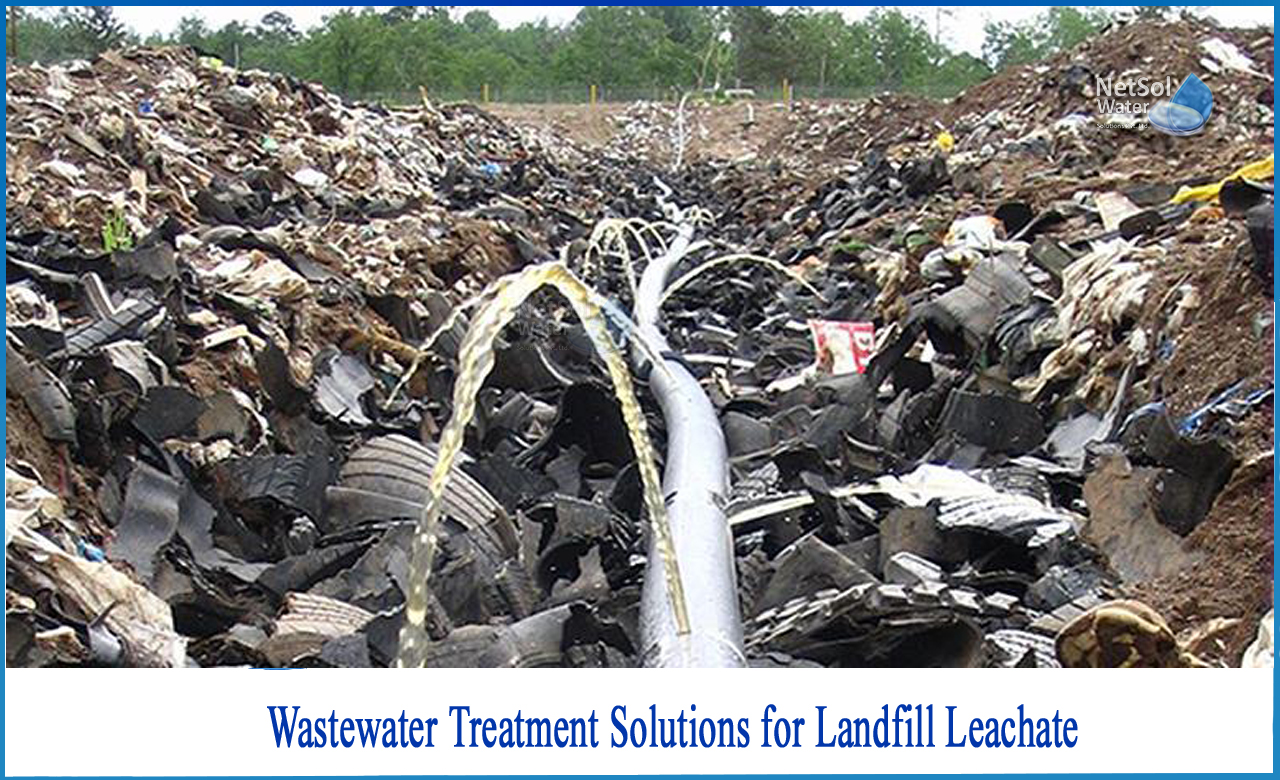How to treat waste water for Landfill Leachate?
Landfills are the most prevalent method of disposing of municipal solid waste. Landfills, in general, comprise a very inhomogeneous collection of materials, including a significant organic component as well as soluble mineral elements. This results in highly filthy leachates, which are caused by rainwater seeping into the landfill as well as the moisture in the waste. It can also happen as a result of groundwater infiltration caused by poorly sealed landfill liners.
There are significant differences in volumetric flow and chemical composition as a result of this. If untreated leachate is permitted to infiltrate water systems, it poses a threat to the environment, pushing Governments to enact more severe pollution control and landfill wastewater treatment legislation.
In most cases, treating the landfill leachate to meet the criteria is sufficient, and it can then be sent to the nearest municipal wastewater treatment plant for further processing. If this is not practicable, the leachate may need to be treated in order to meet the requirements for direct discharge into a river, stream, or lake.
Treatment of Landfill Leachate
Landfill leachate is characterised by a high chemical and biological oxygen demand, as well as the presence of unwanted organic and inorganic pollutants. The content and age of landfill contents, the degrading technique, climate, and hydrological variables all influence landfill leachate.
Membrane bioreactors and integrated biological approaches, such as integrated anaerobic ammonium oxidation and nitrification/denitrification processes, have shown high ammonia and nitrogen removal efficiency of more than 90%. Coagulation/flocculation procedures have also enhanced the effectiveness of suspended particles and turbidity eradication.
Furthermore, by combining multiple treatment approaches, enhanced metal removal can be achieved, with a removal efficacy of 40–100%. However, more research in the field of leachate treatmentis required to improve treatment methods in order to obtain optimum elimination efficiency.
Biological Treatment Methods
The metabolic activities of microorganisms result in the biological breakdown of pollutants. Biological approaches are often employed to remove nutrients (e.g. ammonia) and organic compounds due to their cost effectiveness; nevertheless, such procedures may not be able to effectively remove heavy metals and non-biodegradable organics. Biological approaches can be divided into two categories:
Aerobic Bioreactors: The most often used biological techniques are aerobic therapy. Continuous aeration and large pre-established bacterial populations are used in aerobic reactors. To remove organic matter from wastewater, the activated sludge process necessitates high concentrations of microorganisms, primarily bacteria, fungus, and protozoa. By entirely reducing biodegradable organic waste into carbon dioxide and water, the activated sludge method can effectively eradicate it.
For treating landfill leachate, the sequencing batch reactor (SBR) is the most frequent approach. The SBR is made up of numerous time-oriented periodic stages, and it operates in batches, which may improve process efficiency.
Anaerobic Bioreactors: Due to the high COD and BOD/COD ratio of landfill leachates, anaerobic approaches often outperform aerobic treatment techniques in terms of landfill leachate treatment. Anaerobic biotechnological treatments for concentrated organic wastewater are effective. Due to the limited output of sludge and biogas, these approaches are both energy efficient and environmentally benign. The biological degradation of organic or inorganic substances without the presence of oxygen molecules is known as an anaerobic treatment.
Conclusion
Netsol Water is a leader in the design and manufacture of plug-and-play modular wastewater treatment systems for landfill leachate.
To deal with landfill leachate, we have a variety of process technologies that may be integrated in a modular design. Biological treatments inclusion aerobic and anaerobic treatments are some of the options. We may also use membrane filtration to recycle wastewater and use it as process water.
Netsol Water is Greater Noida-based leading water & wastewater treatment plant manufacturer. We are industry's most demanding company based on client review and work quality. We are known as best commercial RO plant manufacturers, industrial RO plant manufacturer, sewage treatment plant manufacturer, Water Softener Plant Manufacturers and effluent treatment plant manufacturers. Apart from this 24x7 customer support is our USP. Call on +91-9650608473, or write us at enquiry@netsolwater.com for any support, inquiry or product-purchase related query.



